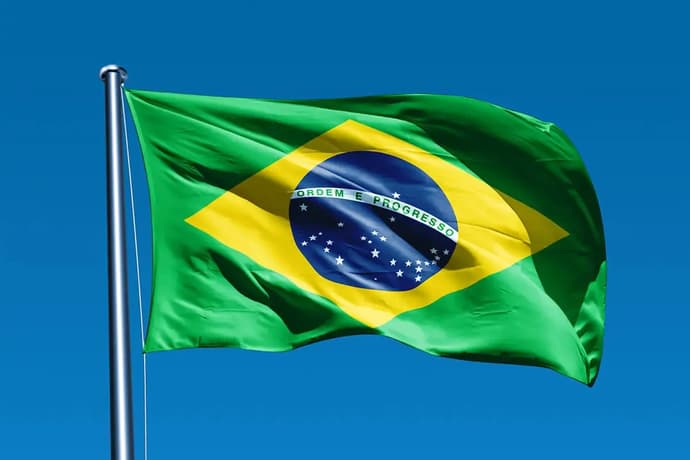
Comment by Erik King on the betting market in Brazil: transition and challenges for operators

Erik King, editor-in-chief of Zamsino, has a lot to say. Recently, the Bureau of Prizes and Betting made a revelation - the 89 operators that can place bets in Brazil. Well, in view of this transition, it's important to hear from someone who is relevant to the betting world in order to understand what's happening and, more importantly, where it's going.
The editor of Zamsino was recently honoured at the Sigma Awards with 3 prizes, one of which was the best site to find 50 free spins on registration, and is the best person to comment on everything that's going on. He's an insider and a credible person, so we'll understand his opinion, as well as everything that's going on.
Betting market transition in Brazil
The deadline for applications for federal licences expired on 30 September, and the Betting and Prize Secretariat (SPA) has revealed the names of the operators authorised to operate during the transition phase. With a licence fee of 30 million reais and the possibility of using up to three brands per application, 89 companies will operate under a total of 193 brands by the end of the year. These include big international names such as Betano, Bet365 and Betsson, as well as Brazilian brands such as EstrelaBet, Aposta Ganha and Rei do Pitaco.
Erik King defined this phase as "a golden opportunity for the big international operators", who will play an important role in testing the response of the Brazilian market and preparing for the regulated launch. "It's a win-win situation for the established operators," says King. "This transition ensures that the major players are able to consolidate their presence and offer a safe and regulated betting solution to players."
The consequences for excluded brands
For the companies excluded from the list, the future is uncertain. In fact, as of 1 October, unauthorised operators will no longer be able to operate, and it will be up to the National Telecommunications Agency (Anatel) to block non-compliant sites. However, Brazil's Supreme Court has granted an exemption to Loterj, Rio de Janeiro's lottery, which will allow state-licensed brands to continue operating.
"This court decision represents a complicated variable in the unified regulation of the betting market in Brazil," emphasises King. "This could generate a split between state and federal operators, creating regulatory uncertainty and obstacles to the application of new legislation."
The Impact of the SPA and the Role of State Operators
The SPA will not limit itself to overseeing federal licensing, but will also publish a detailed list of companies with state licences, which will only be able to operate within the boundaries of their respective states. These state licences, which currently only affect six companies, open the door to regionalised operations, which on the one hand allows small companies to enter the market, but on the other may create barriers and regulatory challenges that compromise the unification of the sector.
According to Erik King, an expert in the field, the possibility of these companies operating legally in their own territories represents a potential "division of the market" that could have repercussions at federal level, especially with regard to the consistency and enforcement of regulations.
For King, the critical point will be to ensure that there are no overlapping rules or jurisdictional disputes between federal and state operators. "The SPA must ensure clear, integrated and transparent management to avoid discrepancies between state and federal licences," King points out. He explains that this means developing a common regulatory line, where both rules and sanctions are applied uniformly, allowing companies to operate within the expected parameters, regardless of the level of licence they hold.
The Future of Betting in Brazil
Looking to the future, Erik King predicts that the Brazilian betting market could become one of the most important in the world. "Brazil has enormous potential, with a young population and a growing interest in sports betting," notes King. "If the regulatory framework is stable and well managed, we could see a boom in the betting market in Brazil over the next few years."
Figures show that 30 per cent of Brazilians have already had contact with this universe and there are indications that the numbers will increase. Faced with such a large number, it is extremely important to continue contributing to a regulated market that encourages a safe betting environment.
Conclusions
The launch of the Brazilian regulated betting market is attracting the attention of operators from all over the world. The transition phase and the current regulatory challenges offer an opportunity to see how this emerging market will evolve. Erik King believes that, despite the obstacles, the outlook is promising for brands that manage to consolidate their position and offer safe and regulated services to Brazilian players.
"Illegality contributes to a great distrust of the bookmaker sector, something that only harms everyone. With this path being taken, we all stand to gain," says Erik King. He also said that he is happy with the way things are going.

Elen Stelmakh is a creative individual dedicated to advancing gaming culture through articles and visual design. As a full-time EGamersWorld author and designer for a gaming website, Elen not only creates content but also infuses it with energy and creativity.
 Full Breakdown of the Shyvana VGU: New Abilities, Release Date, Everything We KnowFull breakdown of the LoL Shyvana rework. Check out her updated skills, including new true damage and healing, plus the release date and Riot Games' plans for the game.
Full Breakdown of the Shyvana VGU: New Abilities, Release Date, Everything We KnowFull breakdown of the LoL Shyvana rework. Check out her updated skills, including new true damage and healing, plus the release date and Riot Games' plans for the game. Marathon Roadmap: What Awaits Players in Seasons 1 and 2Marathon’s first two seasons are detailed by Bungie. Discover how the seasonal system works, what DEATH IS THE FIRST STEP and NIGHTFALL add, and what players can expect after launch.
Marathon Roadmap: What Awaits Players in Seasons 1 and 2Marathon’s first two seasons are detailed by Bungie. Discover how the seasonal system works, what DEATH IS THE FIRST STEP and NIGHTFALL add, and what players can expect after launch. Dota 2 PGL Wallachia Season 7 OverviewEverything about PGL Wallachia Season 7: schedule, teams, format, and $1M prize pool.
Dota 2 PGL Wallachia Season 7 OverviewEverything about PGL Wallachia Season 7: schedule, teams, format, and $1M prize pool. Genshin Impact Version 6.5: Leaked Banners, Endgame Resets and New ZonesGet ready for Genshin Impact Version 6.5. Explore upcoming banners featuring new Geo support Linnea, updated endgame challenges, and the highly anticipated Dornman Port map expansion.
Genshin Impact Version 6.5: Leaked Banners, Endgame Resets and New ZonesGet ready for Genshin Impact Version 6.5. Explore upcoming banners featuring new Geo support Linnea, updated endgame challenges, and the highly anticipated Dornman Port map expansion.





